Doug Ramsey's Blog, page 14
October 4, 2010
The Latest Recommendations
Kindly direct your attention to the display under the legend Doug's Picks in the center column. You will find new recommendations of CDs, a DVD and a book.
Book: Nat Hentoff
[image error]
Nat Hentoff, At The Jazz Band Ball: Sixty Years On The Jazz Scene (U of California Press). Hentoff is our leading avatar of the proposition that jazz is a living expression of the principles embedded in the US constitution, of which he is also a scholar. He does not deal in technical analysis of music. He gives strong, informed opinions and tells stories about those he knew or knows intimately, among them Louis Armstrong, Duke Ellington, John Coltrane and Clark Terry. But he also writes about less famous figures whose blazing individuality "puts their lives, memories and expectations into the penetrating immediacy of their music." Hentoff may wear his love for jazz on his sleeve, but he balances it with insight, knowledge and long experience.
DVD: Johnny Mercer
[image error]
Johnny Mercer, This Time The Dream's On Me (Warner Bros). Producer-director Bruce Ricker does a masterly job of integrating new and old material into a thorough biography of the great lyricist. The story of Mercer's life and artistry melds film clips and recordings of Bing Crosby, Fred Astaire, Frank Sinatra, Ella Fitzgerald, Louis Armstrong and Mercer singing his songs. Colleagues including Johnny Mandel and Tony Bennett offer assessments of his gifts, and Mercer himself reflects on his career. There is no attempt to gloss over his drinking and affairs, but they are in proper perspective. The film leaves the viewer with an amazed sense of Mercer's brilliance, consistency and adaptability.
CD: Martin Wind
[image error]
Martin Wind, Get It? (Laika). The quartet's feeling of controlled abandon, symbolized in the cover shot, is notable in the title tune inspired by James Brown. There's a sense of slight danger even in the stately treatment of Billy Strayhorn's "Isfahan" and Wind's atmospheric, blues-inflected "Rainy River." The chance-taking is at a high point in Thad Jones' "Three and One," with a Scott Robinson tenor sax solo that slithers, growls and wails. Wind, Robinson, pianist Bill Cunliffe and drummer Tim Horner are a compelling combination. On two pieces, Wind makes his debut on cello.
CD: Irene Kral
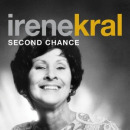
Irene Kral, Second Chance (Jazzed Media). Kral's stock in trade was perfectionof intonation, time, feeling, diction and lyric interpretation. She sang with little movement, no show biz mannerisms, nothing resembling schtick. She was so good at 25 that in 1957 Maynard Ferguson hired her on the spot after hearing one song. Alan Broadbent became Kral's piano accompanist in 1974. Until her death four years later, they performed together on a plane of empathy rarely achieved in any genre of music. This previously unissued club performance from 1975 is an essential addition to their small discography.
CD: Miles Davis
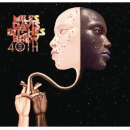
Miles Davis, Bitches Brew 40th Anniversary (Columbia). Here is everything you are likely to want to hear, know, ask or think about Davis' full-fledged leap into the rock ethic that informed his music in the 1970s. It is a lavish boxed package of two LPs, three CDs, a DVD, a book and a packet of posters, ticket replicas, photos, proof sheets and Columbia memos. For those willing to spend more than a hundred bucks, the memorabilia aspect is an attraction, but the music is the thing. Sidemen including Wayne Shorter, Joe Zawinul, Chick Corea, John McLaughlin, Dave Holland, and post-production maven Teo Macero, helped Miles deliver on his celebrated claim, "I could put together the greatest rock & roll band you ever heard." Rock never lived up to his example.
October 1, 2010
Correspondence: Butler Did It
Rifftides reader Garret Gannuch practices pediatric radiology in Denver. When he moved to Colorado, his Louisiana soul went with him. A week ago, Dr. Gannuch traveled into the country south of Denver to hear a fellow New Orleanian. He knew that, like nearly anyone who's ever lived there, I'll never get over my love affair with New Orleans and he wrote me about the experience. I asked him if I could let you in on it. He said yes. Here is his report.
I attended a solo piano concert by Henry Butler at the Cherokee Ranch and [image error]Castle in Douglas Country, Colorado. The setting couldn't be better. The music is presented on a ranch amid more than 3,000 preserved acres south of Denver in a beautiful, relaxed great hall comfortably seating 50 or so music lovers. The food is good too.
Butler, the jazz and blues pianist, composer, and singer from New Orleans, gave an energetic and uplifting performance. Influenced by Sir Roland Hanna, James Booker and Professor Longhair (Henry Roeland Byrd), his music is infused with the rhythms of New Orleans piano a style rarely mentioned in blogs and articlesand the blues. His speech and manner are gentle and humorous. His playing is forceful.
He opened the historically informed program with "Trocha," a tango from 1896 by William Henderson Tyres. Essentially playing the piece straight, he let the Cuban dance rhythms dominate the hall. You could hear and feel the relationships between Caribbean, New Orleans, jazz and blues music. Butler permeated the evening with the kind of rhythms New Orleans second-liners dance to as he built on the mood set by the opening number. He followed with tour de force versions of "Wolverine Blues" by Jelly Roll Morton[image error] (1906), "Buddy Bolden's Blues" ("Funky Butt") by Willy Cornish (1902) and Morton's "King Porter Stomp" (1923). But even when he moved on to "How to Handle a Woman" by Lerner and Loewe, "Fiddler on the Roof" by Bock and Harnick, "If I Only Had a Heart" and "Ding-Dong! The Witch is Dead" by Arlen and Harburg, the heavily syncopated and dotted-rhythm style of New Orleans piano dominated. Everything was infused with the blues.
In the second half of the program he introduced powerful vocals into the evening and played his own "New Orleanian in Exile," "Booker Time," and "I Got My Eyes on You" as well as "Sitting on the Dock of the Bay" by Cropper and Redding. For encores he sang a soulful version of Kern and Hammerstein's "Ol' Man River," the best I have ever heard live, and got the room dancing to Professor Longhair's "Go to the Mardi Gras."
Reviewers often mention Butler's "thunderous" approach to the keyboard, use of syncopated block chords and clusters, fast interacting arpeggiated lines, the interaction between hands and the strong rhythms. But, for me, there is more than a heavy touch. I can hear his love for classical music. You can tell he listened to Alicia de Larrocha, Andre Watts, Andre Previn, Walter Gieseking, Horowitz, as well as jazz greats Peterson, Tatum, Jarett and Coreaand loves them all. He produces an original, rich, deep gumbo that brings me back to New Orleans, inviting me to move with the music and participate in the event.
Butler gives yearly trio and solo performances at Cherokee Ranch. Check out their varied schedule.
Thanks to Dr. Gannuch for sharing his impressions. As far as I know, there is no video of Butler's Cherokee Ranch concert. Here he is during his stint last year as artist in residence at Mendocino College in northern California. Listen to him turn a lemon into lemonade at about 2:45.
Butler's CD called Pianola is a collection of his astonishing solo performances.
Diversion: Johnny Wittwer
During my early development as a listener, I was immersed in the works of Charlie Parker, Bud Powell and Miles Davis when along came Johnny Wittwer. Wittwer was a Seattle pianist who had been been important in the traditional jazz revival on the west coast in the 1940s. Early in that decade he had a trio with clarinetist Joe Darensbourg and drummer Keith Purvis. Later, he was active in San Francisco and worked with Kid Ory and Wingy Manone, among others. In the dialectic of the absurd but deadly serious 1950s division between boppers and moldy figs, most boppers regarded him as hopelessly moldy. Too bad for them. Wittwer was a superb pianist who knew everything there was to know about Jelly Roll Morton. He could explain and demonstrate Jelly to a faretheewell. Although he chose not to play it, he also knew what modern jazz was made of. As an exercise in whimsy or irony, he would toss off a few bars of an uncannily accurate Horace Silver impression.
For a whippersnapper, hanging out with John was not only a fine education but also great fun. He was as hip to English literature as he was to Jelly Roll. Discussions with Wittwer helped me with my class on the Victorian novel. All of that came to mind when I stumbled across this Wittwer solo recording from 1945. It's good to hear him again.
Wittwer once suggested that he and I write a Broadway musical together. He would do the music, I the words. It would star Pat Suzuki, whom we both knew. I went in the Marine Corps and the collaboration never happened. Pat went on to star in The Flower Drum Song.
September 29, 2010
In Breve (1): Iyer, Kilgore, Willis, Figarova, Caliman-Christlieb
Jazz is dying? Ha. The stacks of evidence on my office floor say otherwise.
Here you see a few of the recent arrivals.  As I may have mentioned, it is impossible to keep up with this stuff. No matter how many listening hours the reviewer carves out of the day, they can never be enough. Selectivity is a necessity. In this installment of the never-ending attempt to stay abreast, here are the Rifftides staff's impressions of a few more or less new releases. These are not full-fledgedeven half-fledgedreviews. Let's call them alerts to worthwhile listening, with brief observations.
As I may have mentioned, it is impossible to keep up with this stuff. No matter how many listening hours the reviewer carves out of the day, they can never be enough. Selectivity is a necessity. In this installment of the never-ending attempt to stay abreast, here are the Rifftides staff's impressions of a few more or less new releases. These are not full-fledgedeven half-fledgedreviews. Let's call them alerts to worthwhile listening, with brief observations.
[image error]Vijay Iyer, Solo (ACT). The pianist takes chances with every aspect of time, harmony and melody. He has the imagination, technique and understanding of the jazz piano tradition to bring off his adventuring with coherence and a sense of discovery. Two Ellington pieces, Monk's "Epistrophy" and "Darn That Dream" give the listener familiar guideposts, but you may find yourself going back to the magnetic complexities of Iyer's "Autoscopy."
Rebecca Kilgore Quartet, Yes, Indeed (Blue Swing). Kilgore doesn't get the recognition she deserves as one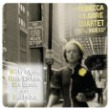 of our finest singers, regardless of category. This collection of standards with her quartet formerly known as B.E.D. could help change that. Kilgore, guitarist Eddie Erickson, trombonist Dan Barrett and bassist Joel Forbes display the polish and tightness of years' experience together. Kilgore's poise, perfect intonation and phrasing are central, but Erickson sings charmingly and Barrett is superb on trombone and cornet. A highlight: the aching purity of Kilgore's vocal on "I Wish I Knew."
of our finest singers, regardless of category. This collection of standards with her quartet formerly known as B.E.D. could help change that. Kilgore, guitarist Eddie Erickson, trombonist Dan Barrett and bassist Joel Forbes display the polish and tightness of years' experience together. Kilgore's poise, perfect intonation and phrasing are central, but Erickson sings charmingly and Barrett is superb on trombone and cornet. A highlight: the aching purity of Kilgore's vocal on "I Wish I Knew."
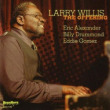 Larry Willis, The Offering (High Note). In demand over the years by leaders as various as Jackie McLean, Stan Getz and Roy Hargrove, pianist Willis recruits tenor saxophonist Eric Alexander, bassist Eddie Gomez and drummer Billy Drummond for this all-star session. His broad expressive and dynamic ranges are impressive throughout, nowhere more than in "Ethiopia," in which Gomez also shines. Willis's Bill Evans leanings are evident in "Three-Four Movement." It's a surprise to find the theme from Star Trek on a jazz album, but it works for improvisation and inspires splendid solos by Willis and Alexander.
Larry Willis, The Offering (High Note). In demand over the years by leaders as various as Jackie McLean, Stan Getz and Roy Hargrove, pianist Willis recruits tenor saxophonist Eric Alexander, bassist Eddie Gomez and drummer Billy Drummond for this all-star session. His broad expressive and dynamic ranges are impressive throughout, nowhere more than in "Ethiopia," in which Gomez also shines. Willis's Bill Evans leanings are evident in "Three-Four Movement." It's a surprise to find the theme from Star Trek on a jazz album, but it works for improvisation and inspires splendid solos by Willis and Alexander.
Amina Figarova, Sketches (Munich). Figarova is almost certainly the only Azerbaijani jazz pianist and composer to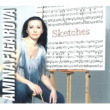 make an impact in the United States. The fleetness and depth of her playing are matched by her writing. She manages to invest three horns with harmonic fullness that often makes her sextet sound half again bigger. Her music has refined relaxation, as in "Four Steps to...," the tongue-in-cheek playfulness of "Breakfast for the Elephant" and the intensity of "Flight No." Figarova is a musician of originality, one to watch.
make an impact in the United States. The fleetness and depth of her playing are matched by her writing. She manages to invest three horns with harmonic fullness that often makes her sextet sound half again bigger. Her music has refined relaxation, as in "Four Steps to...," the tongue-in-cheek playfulness of "Breakfast for the Elephant" and the intensity of "Flight No." Figarova is a musician of originality, one to watch.
[image error]Hadley Caliman, Pete Christlieb, Reunion (Origin). This was the last record Caliman made before he died early this month. It brought him together with fellow tenor saxophonist Pete Christlieb, with whom he played in Los Angeles in the early '60s when Caliman was a young veteran and Christlieb a stripling. Their empathy, and the contrast in their styles, rekindles in this affectionate, spirited collaboration. The CD includes compositions by each, a lovely "Up Jumped Spring" and a high-energy romp on "Love for Sale." Pianist Bill Anschell, bassist Chuck Deardorf and drummer John Bishop are the yeomanly rhythm section.
More In Breve soon. Watch this space.
September 27, 2010
Recent Listening: Danilo Pérez
Danilo Pérez, Providencia (MackAvenue).
In what may well have been his most substantial and visionary contribution to world understanding and the progress of his nation, the late Mexican president José López Portillo said in a 1977 interview, "Everything is part of everything else." 1,500 miles to the south in Panama, Danilo Pérez was an 11-year-piano student. He may not then have been paying attention to the international relations pronouncements of foreign politicians, but when it comes to music, the adult Pérez is in agreement with the López Portillo[image error] principle. Providencia presents his philosophy in a program of 11 pieces that in an era of conflict and baffling change is intended to break through categories into a unitarian vision. Listeners may approach the CD with that in mind and be inspired by Pérez"s world view. Or they may disregard the programmatic scheme announced in the liner notes and enjoy a collection that, for the most part, works with or without a message.
However global Pérez's intention, the heart of his music remains in the Central American conventions that formed his ethos. The CD is a successor to previous Pérez albums, Panamonk and Motherland. It develops elements of his work that go back to the 1993 debut recording named for him. His writing and playing here are at their most moving when they try least hard. Two traditional pieces, "Historia de un Amor" and "Irremediablemente Solo," with his longtime bassist Ben Street and drummer Adam Cruz, are langorous exercises in trio empathy and melodic development. In several tracks, alto saxophonist Rudresh Mahanthappa, Pérez and the trio explode with emotion. Elsewhere, ensembles employing woodwinds meander, although a section of one with a vocalese lead by soprano Sara Serpa crystallizes to great effect. The album ends with a short duet between Pérez and Mahanthappa that gleams with elegance and longing.
Doug Ramsey's Blog
- Doug Ramsey's profile
- 2 followers



